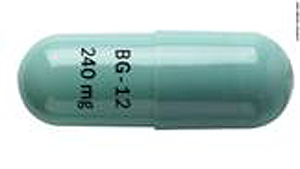MS patients have an “insatiable appetite” for information about treatments online, particularly the new class of oral treatments, according to a patient survey by agency Extrovertic and WEGO Health.
They surveyed 89 WEGO “health activists” and 75 participants in their respective communities. A majority of respondents said they’d ask their specialist to switch them to one of the new orals if it was sure to work as well as their current medication, though health activists were considerably more likely to say they’d ask to switch (68%, to 53% for participants). Asked about specific brands, patients were most interested in hearing more about Biogen-Idec’s BG-12 (68%), followed by Genzyme’s Aubagio (65%) and Lemtrada (59%) and Novartis’ Gilenya (57%).
The FDA is slated to rule on BG-12 later this month, and Genzyme owner Sanofi expects an FDA decision on Lemtrada in the second half of this year. Aubagio won FDA approval in September, and Gilenya got the green light from the agency back in 2010.
This was less the case with established brands like Avonex and Tysabri, where awareness was near-universal and interest in learning more about a brand was in the 30-40% range.
Extrovertic had expected to hear a lot more grumbling about side effects but found that only 21% said it’s in their top 3 topics for online discussion.
“Health activists are so driven to find an efficacious product in this category that they were able to put the side effects in perspective and balance that tradeoff,” said Extrovertic CEO Wetzel.
Instead, patients are going online to talk to other patients about personal issues, like the challenges of living with MS, their fears about disease progression, symptoms, future treatments and dealing with family and friends, and consulting their specialist for treatment concerns like medication and side effects.
The findings suggest that marketers should be keeping an editorial calendar and pulsing out information on their products in the form of video, news releases and viral-ready blurbs that can be shared or Re-Tweeted.
“People are hungry for it,” said Wetzel. “This community loves to pass on information.”
Marketers with brands entering the market should help to prep patients for the product switch conversation, said Wetzel, because “While many are comfortable talking to their specialist about it, even with the injectible-to-oral switch, they’re not going to do it automatically – they’re going to wait for some therapeutic inflection point.”








